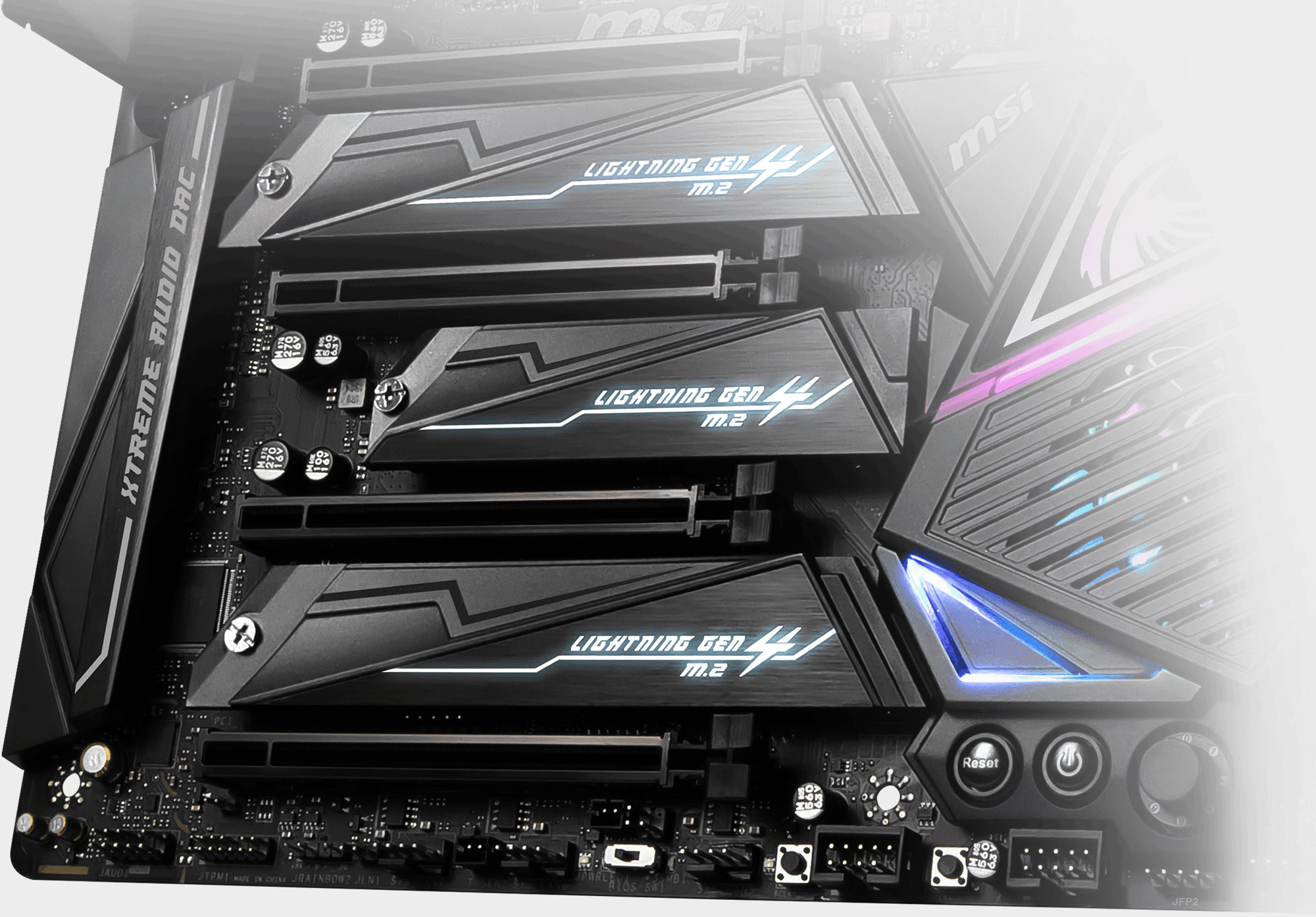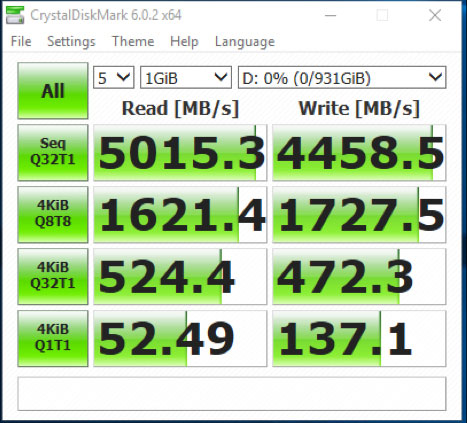Much faster SSDs are coming (this one from MSI tops 5,000MB/s)
And maybe they'll drive down the price of existing SSDs.

Processors and graphics cards aren't the only things getting faster, so are solid state drives. To demonstrate this, MSI is showing off a new NVMe SSD that can hit sequential read speeds exceeding 5,000MB/s.
That's insanely fast, folks. To put that into perspective, Samsung's 970 Evo Plus is rated to read data at up to 3,500MB/s. That's also an NVMe drive. Same goes for WD's Black SN750, one of the best SSDs for gaming, which has a rated read speed of up to 3,470MB/s. And in SATA territory, speeds typically top out at around 550MB/s to 580MB/s.
MSI is not alone in pushing 5GB/s read speeds. Earlier today, I wrote about Corsair's new MP600, which is rated to deliver up to 4,950MB/s of sequential reads. Gigabyte also has a comparable model in the works.
What's making these speed gains possible is AMD's new X570 chipset, and specifically the introduction of PCI Express 4.0 support. PCIe 4.0 doubles the bandwidth per lane of PCIe 3.0, which in turn paves the way for faster graphics cards and speedier SSDs.
As of right now, these speeds are only attainable by pairing a 3rd gen Ryzen processor with an X570 motherboard, and then plugging in one of these newfangled drives.
To demonstrate the speed of its upcoming SSD, MSI plugged the drive into its Meg X570 Ace motherboard and benchmarked it using CrystalDiskMark. Here's a look at the results:

As with Corsair's MP600, MSI's new drive is using a Phison PS5016-E16 controller, likely paired with standard 3D TLC (triple-level cell) NAND flash memory chips.
Keep up to date with the most important stories and the best deals, as picked by the PC Gamer team.
"Phison will be releasing its own PCIe Gen4x4 NVMe PS5016-E16 SSD solution to the market, completing the world's first consumer affordable PCIe 4.0 PC application platform," said K.S. Pua, chairman and CEO of Phison, "Through these strategic alliances, ecosystem partners can finally embrace the growth of emerging application markets that can benefit from high-performance computing, such as 5G services and 8K HD content, unlocking the gate to the next technology era."
As I've mentioned before, there's limited benefit with these speeds for gaming. Even a SATA-based SSD is fine for a gaming PC. Still, it's nice to see hardware makers pushing the envelope. If nothing else, these faster drives might push down the price of the current batch of the best NVMe SSDs, as well as SATA models.
MSI did not say when its new SSD will be available or for how much.
Paul has been playing PC games and raking his knuckles on computer hardware since the Commodore 64. He does not have any tattoos, but thinks it would be cool to get one that reads LOAD"*",8,1. In his off time, he rides motorcycles and wrestles alligators (only one of those is true).


